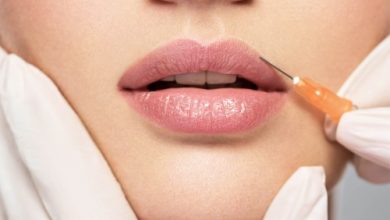The Impact of Stress on Skin Health

We all know that stress can affects our mental and emotional health, but did you know it can also take a toll on your skin? When you’re stressed, your body releases stress hormones like cortisol, which can have a direct impact on your skin’s appearance and health. Understanding the relationship between stress and skin health is key to maintaining a healthy complexion. In this blog, we’ll explore how stress can affect your skin and share tips to combat its negative effects, including adjusting your skincareroutine.
How Stress Affects Your Skin
- Increased Breakouts
Stress can cause your body to produce more cortisol, hormone that stimulates the sebaceous glands to produce more oil. This excess oil can clog pores and leads to acne breakouts, particularly on the face, back, and shoulders. If you’re already prone to acne, stress can worsen the condition and make it harder to manage.
- Dryness and Sensitivity
When you’re stressed, your body’s natural barrier, the skin’s moisture, becomes compromised, leading to dry, flaky skin, and you might notice more irritation or redness. For those with sensitive skin, stress can trigger allergic reactions, making the skin more prone to irritation.
- Face Pigmentation
Stress can also contribute to face pigmentation, especially in people who are already predisposed to dark spots. Stress can worsen the appearance of existing pigmentation or cause new spots to form due to hormonal imbalances. Conditions like melasma, which causes brown or grayish patches on the skin, are often aggravated by stress.
- Premature Aging
When you’re stressed, your body’s ability to repair itself slows down. This can result in the breakdown of collagen and elastin, which are responsible for keeping the skin firm and youthful. Over time, stress can contribute to the development of fine lines and wrinkles, making your skin appear older.
How to Protect Your Skin from Stress
- Adjust Your Skincare Routine
A well-balanced skincare routine is essential to combat the effects of stress on your skin. Use products that help restore moisture, balance oil production, and support skin repair. Look for hydrating products like moisturizers with hyaluronic acid or soothing ingredients like aloe vera to calm irritated skin.
- Use Face Pigmentation Creams
To address face pigmentation caused or worsened by stress, consider using targeted treatments like face creams for pigmentation that contain ingredients like vitamin C, niacinamide, or retinol. These ingredients help to brighten the skin, even out skin tone, and reduce the appearance of dark spots and pigmentation.
- Practice Stress Management Managing stress through activities like yoga, meditation, deep breathing, or regular exercise helps lower cortisol levels and prevent its harmful effects on your skin. Taking time to unwind and relax is not only good for your mind but also essential for your skin’s health.
- Get Enough Sleep
Sleep is essential for skin repair and rejuvenation. Aim for 7-9 hours of quality sleep each night to allow your body to regenerate and repair damaged skin cells. This helps to keep your skin healthy, glowing, and resilient against the effects of stress.
Conclusion
Stress may be inevitable in our daily lives, but its impact on your skin doesn’t have to be permanent. By adjusting your skincare routine, using face pigmentation creams, and practicing stress-reducing activities, help maintain your skin look healthy and radiant. Taking care of both your mental and physical health is the key to maintaining a clear, youthful complexion.




